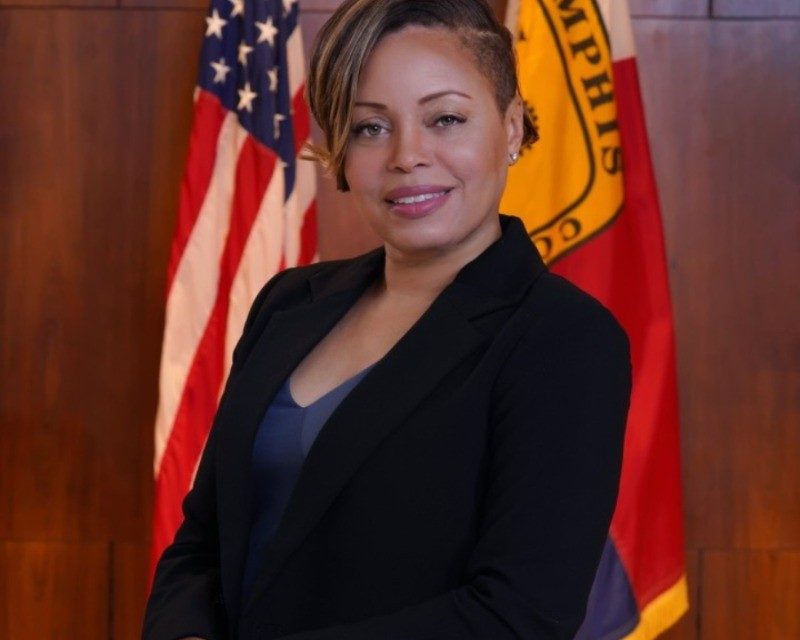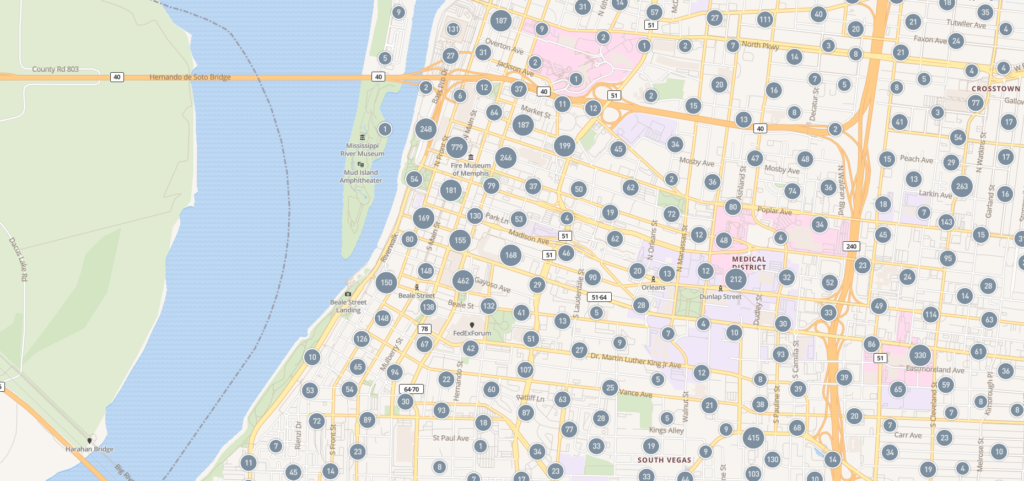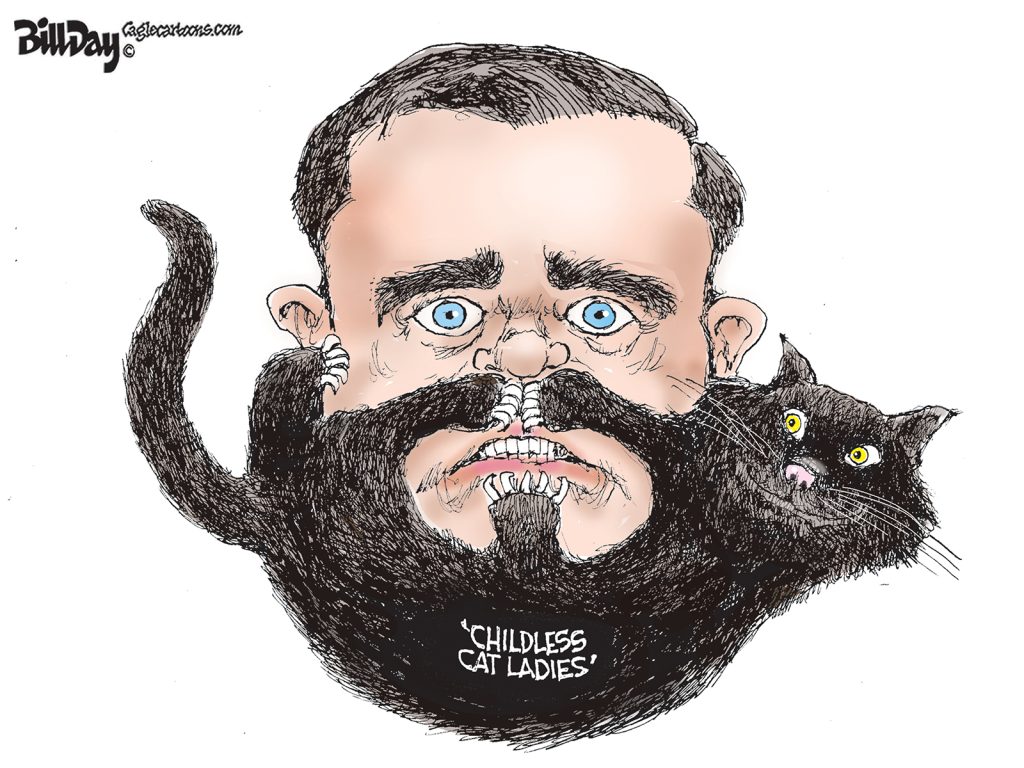The Chandell Ryan era has begun for the Downtown Memphis Commission and anyone who cares about downtown should stand with her to turn around the present state of the area.
She assumes the presidency of the city-county downtown development agency at a particularly challenging time. Confidence in the organization is arguably at an all-time low following the decline in recent years in downtown’s cleanliness, landscaping, safety, and general livability.
That’s why the honeymoon period for Ms. Ryan is likely to be exceedingly short. People want action and they want it now.
It’s why there’s little patience for on-the-job training for turning around downtown She needs quickly to learn what makes downtowns succeed and how the DMC operations and culture need to be reimagined to increase productivity (think Blue Suede Brigade) and public confidence. The good news is that there are experts downtown with national reputations who can help. Hopefully, she will lean on them in order to get up to speed quickly and at the time bring more intellectual capital to the DMC.
Although I wrote that the Downtown Memphis Commission should hire someone from outside Memphis with specific downtown turnaround experience, if someone from the city was to be hired, Ms. Ryan fits the bill. She has a reputation and the skills to be what the agency needs at this pivotal time in its history.
She also has broad experience in management, rising from an assistant city attorney to become the chief operating officer/chief administrative officer responsible for the day-to-day operations for more than 6,000 employees and a budget of about $700 million. In that key position, she was known for steady, logical, dependable, and sturdy leadership. In addition, she lives downtown which enhances her opportunity to manage while walking around.
The State of Play
It’s an assertive brand of leadership that downtown calls for today as it faces an array of issues:
- Out-of-control llegal parking is out-of-control and city government vehicles are among the worst offenders, seemingly believing they have the right to park anywhere, even if they are blocking sidewalks.
- Trash receptacles spill over onto sidewalks because they are not emptied for days at a time.
- Beale Street smells and its atmosphere is often dirty and gritty.
- Streets are closed willy-nilly with no real traffic plan, driving away potential restaurant customers and discouraging people from coming downtown.
- There is a lack of coordination with city departments to address lingering issues that they could help with.
- The litter left by the unhoused – which often includes everything from deodorant to condoms if not bodily excretions – is picked up too late – after hotel guests check out, as downtown residents take their morning jogs, and as people walk to work.
- Planters are regularly full of trash rather than live plants and landscaping is erratic, poorly maintained, and eyesores.
- The argument that downtown is the safest neighborhood in Memphis is getting hard to make with the ubiquity of property crimes and a pandemic of car break-ins. Downtown murders are extremely rare – in a city with almost 400 murders last year, about 10 – 2.5% – were in downtown, triggering breathless coverage by the news media searching for clicks and labeling events as downtown that happen far outside the geographic core.
- Car thefts, break-ins, and vandalism for downtown residents, restaurant customers, and people at special events are well-documented but not well-prevented. All in all, it raises questions about deployment of MPD officers who often seem to be inside their cars and on their phones rather than prevention by walking around.
- But worst of all, there is an undercurrent of anxiety about whether its problems can even be solved.
Fortunately for Ms. Ryan, Brett Roler, formerly vice president of planning and development for the DMC, was recently named COO. He possesses a depth of knowledge about downtown and Clean and Green efforts. In this new position, he can have a more direct impact on programs and act as a reservoir of sound advice for Ms. Ryan.
Making The Most of a Crisis
If a crisis is a terrible thing to waste, this is a major moment for mobilizing support for DMC with stepped-up advocacy and aiming higher.
There are already signs of a renewed sense of urgency. For example, recently, the Daily Memphian reported about the Memphis Grizzlies concerns about Beale Street and the team’s insistence that there has to be a plan for a street that shows multiple signs of neglect – putrid smells, poor public infrastructure condition, litter and garbage laying on the sidewalk, broken light poles, food trucks setting up near the historic street and taking money from restaurants who pay rent and generate multiple taxes to the city, and the unsightly street barricades at Second, Third and Fourth that look like they were made in a high school shop class when bollards are needed.
That said, the Grizzlies leadership is not just deeply concerned about Beale Street but about all of downtown; however, the historic street is the ultimate test for whether the DMC can succeed in its job. It manages the street, which generates tens of millions of dollars in sales which spin off alcohol taxes, sales taxes, and other taxes to city coffers.
In recent years, Beale Street has shown serious signs of neglect. An obvious need is for the DMC to hire a management company experienced in entertainment districts to manage the street. It’s not enough to care about the street; it’s more important to know what should be done to improve it and protect this crucial Memphis asset. In the past two years, the DMC has turned down new leases, turned a blind eye to problems, and failed to urge businesses to reinvest in their properties.
Grizzlies Understand What’s Needed
It’s little wonder that the Grizzlies are upset about Beale Street. As the team and the city negotiate an agreement for arena upgrades that could determine if it stays in Memphis, everyone should be paying attention and urging DMC to fix things.
It’s worth remembering that Grizzlies team president Jason Wexler was previously president of the Henry Turley Company where he was responsible for city center development and operations of a full-service real estate firm. Before that, he founded a real estate development and investment firm. He has an architecture degree from University of Virginia and a law degree from Columbia University.
Put simply, when Mr. Wexler talks, we should listen. He understands what downtown should be and his involvement in making that happen is a welcome development in going forward.
He is not alone. Others with important clout to drive change are also serious about getting involved, and all of this is good news for Ms. Ryan. She will need substantial clout behind her to achieve what needs to be done in downtown Memphis. Hopefully, she will eliminate the tendency of the Downtown Memphis Commission to act like it is a department of City of Memphis government and intent to making sure the mayor is happy. To do this, we hope the DMC will reclaim its independence and assertive advocacy.
That is not to say that DMC will not benefit from Ms. Ryan’s depth of knowledge about city services and operations and be able to maneuver within city government for DMC to get the kind of help and improved coordination that it needs from city departments.
Start with Accountability
It should begin with the signing of the agreement that was drafted but not signed when Paul Morris was DMC president. It set out the specific responsibilities and accountability of various city departments and the DMC. It included MPD providing bike patrols to deter crime and enforcing prohibited parking; maintenance by Memphis General Services of all tree grates, benches, and pavers; and Public Works regularly emptying the trash cans. It deserves to be updated, ratified, and become an official agreement between DMC and City of Memphis.
Hopefully, new Memphis Mayor Paul Young, previous DMC president, will fully understand the value of this type of agreement and help to jump start its processing and signing.
Main Street Is Shameful; There’s An Agreement That Could Fix It
Nothing is more pressing in the near term than working with MPD on downtown deployment that makes sense, finding out if Chief C.J. Davis and her team have an actual plan for reducing crime and protecting residents and visitors downtown, for innovations like downtown having its own precinct, and more.
After a shooting on Gayoso that left eight people wounded last August, MPD said it would have additional officers assigned to downtown, raising the question of whether they are still there, how were they used, and if they are not still there, why were they moved? MPD has also been meeting with a group of concerned citizens who gave them a list of concerns and recommendations, raising the question of what has been done as a result and what has been its impact?
More to the point, the DMC and MPD need better lines of honest, open communications with the public so there’s more transparency of strategies and results. Today, the lack of information fuels suspicions and deepens frustration.
A Downtown Plea For A Plan To End The Chaos
Responses to crime don’t just rest with MPD. It also requires the DMC to determine if its current security programs are working and what is needed for them to be more effective. In addition, there are lessons from other cities that are working there that should be considered for downtown Memphis.
If any impetus is needed for an all hands on deck attack on crime in new and innovative ways, downtown’s crime map should provide it.
Yes, development of real estate is a fundamental mission of the DMC, but downtown’s existing businesses pay about $4.5 million a year in a special tax assessment and they expect to have a clean, safe, and attractive downtown in return. Many of these business leaders now justifiably complain they are not getting the return on investment that was promised way back when the special fee was approved and the DMC needs to mend fences and establish new partnerships with the business community.
For those of us of a certain age, we remember downtown as an exciting place to work and play. It was active, parks and sidewalks were filled with pedestrians, especially at lunchtime, and it was well-maintained with no illegally parked cars, and most of all, it was walkable.
Today, it can be demoralizing. Downtown’s condition is tantamount to sending the message that nobody cares, and the signs of disorder and apathy can encourage crimes and misbehavior. That’s why illegal parking matters. The lack of enforcement says to people that anything goes downtown so why bothering to obey city laws; we can do whatever we want to do and get away with it.
A Vision for the New DMC Administration
As Ms. Ryan begins her work at the helm of the Downtown Memphis Commission, she should heed the advice of Mr. Morris when he was named to the presidency of the downtown agency in 2010:
“First and foremost, we need to make downtown a more attractive environment to be. If we can get the infrastructure in better repair, if we can keep the streets vibrant with activity, if we can attract restaurants and other amenities for office tenants, then office tenants will want to move downtown. Being downtown provides a community atmosphere that the suburbs can never provide.
“Data from other cities have shown that if you have a vibrant Downtown, you can help turn the whole city around. I think the most efficient and effective way to turn the economy around in Memphis is to focus a lot of our efforts on Downtown because to become a city of choice and to attract and retain talent, best practices from other cities say you have to have a vibrant Downtown to accomplish either one of those goals.”
It’s a relevant charge for the DMC today and a good vision for the new Ryan/Roler administration.
Moving Back From the Precipice
We begin by admitting that we took our eye off the ball and we are paying the price. It was only in 2018 that things were so bright that I asked on this blog if downtown was embarking on its golden age.
It’s a reminder of how quickly things can change. That reality should also spark a renewed sense of urgency to make the improvements that can transform downtown into all that it should be.
As this new era is launched, here’s the most important point: the Downtown Memphis Commission has broad powers and even greater influence. It has not fully flexed either in recent years. Ms. Ryan is a lawyer and she has the ability and opportunity to leverage the full powers of the agency that have largely gone dormant and assert the Commission’s authority over downtown. Most of all, she can be the aggressive advocate that downtown needs – undaunted by the political winds and a stalwart force that things must change.
Downtown is on the edge of a precipice and it can go either way – into a bolder, better future or remaining a place of unrealized and disappointing potential. Ms. Ryan can be the transformational leader that downtown badly needs. We should all hope she succeeds.
**
Note: I had the pleasure many years ago of working for about 25 years with Ms. Ryan’s mother, Dorthy, one of the finest people I have ever known. I met her daughter, Chandell, when she was a child and I can only imagine how proud her hard-working mother is today, and that is to say, the new DMC president was raised with the role model of a strong work ethic, empathy, and high principles.
**
Join us at the Smart City Memphis Facebook page and on Instagram where these blog posts are published along with occasional articles, reports, and commentaries that are relevant to Memphis.





